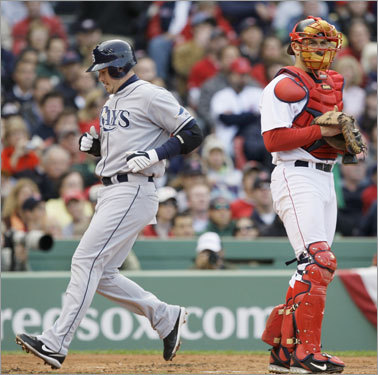
Back in April the PAL fortune teller made some bold predictions about GlaxoSmithKline’s (NYSE:GSK) new migraine drug Treximet. (’GlaxoSmithKline sets out to dupe migraine sufferers with Treximet smoke and mirrors“). Treximet is nothing more than a combination of Imitrex (sumatriptan, soon to be available as a generic) and naproxen sodium (commonly known as Aleve and available over-the-counter). Treximet is a perfect example of what we called a Goober Grape drug, which we described thusly:

What’s a Goober Grape Drug?Goober Grape, for the (fortunately) uninitiated, is a appalling combination of peanut butter and jelly in a single jar....
So henceforth, a “Goober Grape Drug” refers to any combination drug that offers no additional clinical advantage and only the most ridiculously minimal increase in patient convenience. There are certainly conditions in which combination pills are important, in that reducing the number of pills to be taken increases patient compliance, but allergies sure as heck ain’t one of ‘em.
Neither, for that matter, are migraines. There's no evidence that taking Imitrex and naproxen in a single pill (as Treximet) is any more effective than taking it in two separate pills, which is not surprising. Given that migraines are often excruciating, it's absurd to think that someone in the midst of a migraine would take one pill, but not two, to relieve their suffering.
So was the PAL Fortune Teller correct? As the PAL fortune teller gazed into the Pharma Crystal Ball, a prediction was made that “TV ads will appear in prime time singing the praises of this “new” treatment for migraines. People frolicking through fields of flowers may or may not appear.” Anyone who watched the recent presidential debates saw the new Treximet commercial. In case you missed it see for yourself, here it is. (Note: there are not, in fact, people frolicking through fields of flowers)
Notice that the ad only says that Treximet is "superior to Imitrex tablets at relieving migraine pain" - it does NOT say that Treximet is superior to Imitrex and naproxen taken together.
The PAL fortune teller also predicted that:
"Yet you can be sure that Treximet’s price will be similar to what Imitrex costs right now ($25 a pill) and there’s a good chance it will be more expensive, as new drugs typically are ($30 a pill? More? Who knows?)."
We were wrong on this one -- at least for now. On drugstore.com, 9 pills of Imitrex cost $199.98, and 9 pills of Treximet cost $229.78. That's about $25 a pill for Imitrex and about $22 a pill for Treximet. Wait a minute, that means Imitrex is more expensive than Treximet (right now). What gives?
As we reported back in April, generic versions of Imitrex will become available starting in late 2008 and into 2009, when Imitrex's patent will expire. So over the next year, the price of Imitrex will go down, finally settling most likely, as most generics do, at 20-30% of the brand-name's price. We predicted that the cost of taking generic Imitrex and over-the-counter Aleve would eventually be about $7.50.
So GSK needs to do as much as they can to get people to switch to Treximet before generic Imitrex becomes available. That means running ads on TV, having drug sales people promoting Treximet to doctors, aggressively distributing samples to physicians' offices. And another way to encourage doctors and patients switching is to price Treximet below the price of Imitrex.
What remains to be seen is what will happen once generic Imitrex becomes available. Inevitably there will be:
- Imitrex patients who switch to Treximet before the generic becomes available who choose to stay on Treximet
- New patients who start on Treximet without ever having taken Imitrex
- Imitrex patients who switch to Treximet before the generic becomes available who then switch to generic Imitrex,
- Imitrex patients who don't switch to Treximet who then switch to generic Imitrex, many of them automatically. This is probably the scenario that GSK most wants to avoid. Most states, and most health plans, have policies requiring "mandatory generic substitution," that is, if a generic is available for your drug, you'll get the generic, unless your doctor writes "Dispense as Written" or "No Substitution" on the prescription.
Categories #1 & #2 above are those most likely to remain Treximet Loyalists. It's distinctly possible that GSK will gradually increase the price of Treximet over time, after the generic becomes available. I'm willing to guess that a lot will depend on how successful they're initial advertising and promotion is in manufacturing a market for Treximet. It'll be interesting to observe.
So: We were right about the Treximet ads, and wrong (at least for now) about Treximet's price. In the end, the PAL Fortune Teller is batting .500. Which is more than we at PAL can say right now for our beloved Red Sox, who are down 2-1 in the ALCS.

